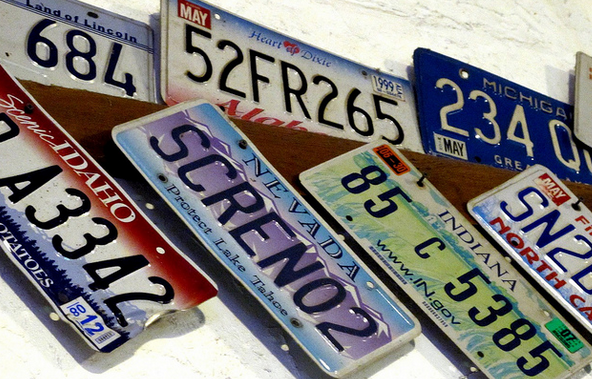California DMV Says Uber & Lyft Cars Need Commercial License Plates
SF Gate reports that the DMV’s guidance could be a major threat to the ride-share apps that allow drivers to use their own personal cars to pick up customers.
“Any passenger vehicle used or maintained for the transportation of persons for hire, compensation or profit is a commercial vehicle,” the DMV wrote in the advisory. “Even occasional use of a vehicle in this manner requires the vehicle to be registered commercially.”
Officials with the DMV say the memo, which clarified existing state law, was prompted by an increasing number of questions from dealers and customers.
Drivers in violation of the law could be ticketed, however, it’s unclear whether it would be up to the DMV, California Highway Patrol or local police to enforce the rules.
Still, the ride-sharing companies were quick to denounce the DMV’s memo, saying that commercial registration costs more than personal registration and entails an array of paperwork and in-person DMV appointments.
“Requiring Lyft drivers, including those who drive just a few hours a week, to get commercial plates would essentially treat peer-to-peer transportation the same as a taxi, undermining the thoughtful work done by the CPUC [California Public Utilities Commission] to craft new rules for ride-sharing in California,” Lyft said in a statement.
Uber, Lyft, Sidecar and other services are regulated by the state Public Utilities Commission (PUC).
A spokesperson with Uber says the DMV’s memo goes against PUC and the Gov. Jerry Brown’s stance regarding insurance for companies.
“The California Public Utilities Commission allows (ride-hailing) drivers to use personal vehicles with personal registration on the UberX platform,” Uber said in a statement.
DMV says UberX, Lyft drivers need commercial plates [SF Gate]
Want more consumer news? Visit our parent organization, Consumer Reports, for the latest on scams, recalls, and other consumer issues.


